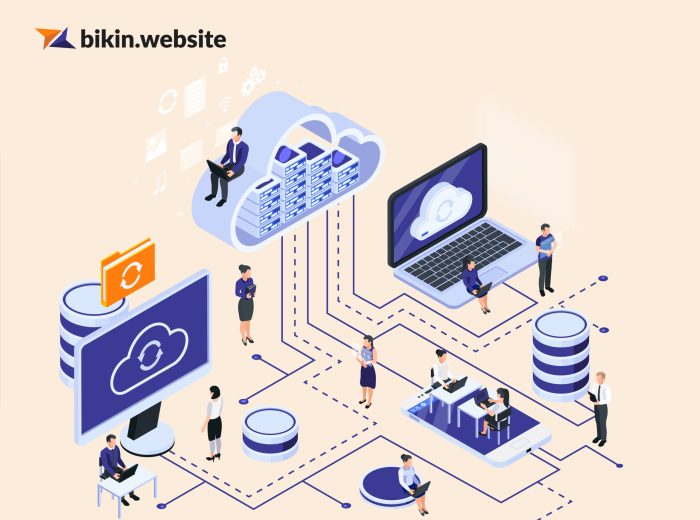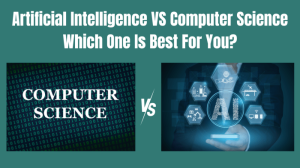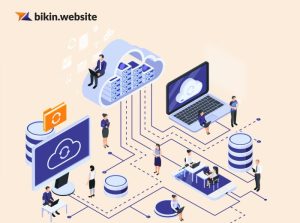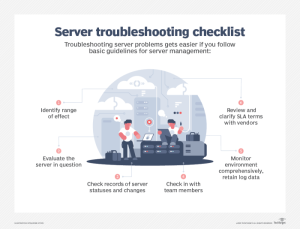
Step into the realm of Cloud computing and computer technology, where innovation meets efficiency and scalability, transforming the way we interact with digital systems. Get ready for an exciting journey filled with insights and discoveries!
In this digital era, the fusion of cloud computing and computer technology is reshaping industries and enhancing user experiences like never before.
Cloud Computing and Computer Technology
Cloud computing is a technology that allows users to access and store data and applications over the internet instead of on their local computer. This innovative approach has revolutionized the computer technology industry by providing scalable and cost-effective solutions for businesses and individuals alike.
Examples of How Cloud Computing is Revolutionizing Computer Technology
- Cloud storage services like Google Drive and Dropbox have made it easy for users to store and access their files from anywhere with an internet connection.
- Software as a Service (SaaS) platforms such as Microsoft Office 365 and Salesforce have enabled businesses to access powerful applications without the need for complex installations.
- Infrastructure as a Service (IaaS) providers like Amazon Web Services (AWS) offer flexible computing resources on-demand, allowing businesses to scale up or down based on their needs.
Benefits of Integrating Cloud Computing with Computer Technology
- Cost-effectiveness: Cloud computing eliminates the need for expensive hardware and maintenance costs, making it an affordable option for businesses of all sizes.
- Scalability: With cloud computing, businesses can easily scale their resources up or down based on demand, ensuring optimal performance at all times.
- Flexibility: Cloud computing allows users to access data and applications from any device with an internet connection, promoting remote work and collaboration.
Comparison of Traditional Computing Methods with Cloud Computing
- Efficiency: Cloud computing offers greater efficiency by eliminating the need for manual software updates and maintenance, as updates are automatically pushed to users.
- Scalability: Unlike traditional computing methods, cloud computing provides the ability to quickly scale resources up or down based on demand, ensuring optimal performance and cost savings.
- Accessibility: Cloud computing enables users to access their data and applications from anywhere, promoting flexibility and collaboration in a digital workspace.
Mobile Computing
Mobile computing refers to the use of portable devices like smartphones and tablets to access and interact with digital information and services on the go. The relationship between cloud computing and mobile computing is crucial in enabling seamless experiences for users on their mobile devices.Cloud computing allows mobile devices to access a shared pool of resources and services over the internet, rather than relying solely on local storage and processing power.
This means that mobile users can store data, run applications, and access services that are hosted in the cloud, providing greater flexibility and scalability.
Popular Mobile Applications Utilizing Cloud Computing
- Dropbox: A cloud storage service that allows users to store and sync files across multiple devices.
- Google Drive: Another cloud storage service that offers file storage, synchronization, and collaboration features.
- Netflix: A popular streaming service that relies on cloud servers to deliver video content to users on various devices.
- Uber: A ride-sharing app that uses cloud computing to match drivers with passengers in real-time.
Challenges and Opportunities of Integrating Cloud Computing with Mobile Computing
- Challenges:
- Security concerns: Transmitting sensitive data between mobile devices and cloud servers can pose security risks.
- Connectivity issues: Mobile users may face connectivity issues when trying to access cloud services in areas with poor network coverage.
- Compatibility: Ensuring that mobile applications are compatible with different cloud platforms can be a challenge for developers.
- Opportunities:
- Scalability: Cloud computing allows mobile applications to scale easily to accommodate a growing user base.
- Cost-effectiveness: By leveraging cloud services, mobile apps can reduce infrastructure costs and improve efficiency.
- Enhanced user experience: Cloud computing enables seamless data synchronization and access across multiple devices, enhancing the overall user experience.
Computers Security
When it comes to cloud computing and computer technology, cybersecurity plays a critical role in ensuring the protection of data and systems from cyber threats. It is essential to implement robust security measures to safeguard sensitive information stored on cloud servers and computer networks.
Importance of Cybersecurity
Cybersecurity is crucial in the realm of cloud computing and computer technology to prevent unauthorized access, data breaches, and other cyber attacks that can compromise the confidentiality, integrity, and availability of data.
Common Security Threats
- Malware attacks
- Phishing scams
- Data breaches
- DDoS attacks
- Insider threats
Best Practices for Securing Data
- Implementing encryption for data at rest and in transit
- Regularly updating security patches and software
- Enforcing strong access controls and multi-factor authentication
- Conducting regular security audits and assessments
- Training employees on cybersecurity best practices
Security Measures in Cloud Computing vs. Traditional Computing
| Cloud Computing | Traditional Computing |
|---|---|
| Shared responsibility model between cloud provider and customer | Full responsibility on the organization |
| Scalable security solutions | Fixed security infrastructure |
| Automatic security updates and patches | Manual updates and patches |
| Enhanced physical security at data centers | Varied physical security measures |
Computers Software
Software applications play a crucial role in cloud computing and computer technology, serving as the interface between users and the underlying hardware. These applications enable users to access, manage, and utilize the resources available in the cloud environment efficiently.
Types of Software in Cloud Computing
- Operating Systems: Provide a platform for running applications and managing hardware resources in cloud environments. Examples include Windows Server, Linux, and VMware ESXi.
- Virtualization Software: Enables the creation of virtual instances of servers, storage, and networks, optimizing resource utilization and flexibility. Popular tools are VMware vSphere, Microsoft Hyper-V, and Oracle VM VirtualBox.
- Containerization Tools: Facilitate the deployment and management of applications in lightweight, portable containers. Docker and Kubernetes are widely used for container orchestration in cloud environments.
- Automation Software: Streamline repetitive tasks and workflows through automation, enhancing efficiency and reducing manual intervention. Tools like Ansible, Chef, and Puppet automate configuration management and deployment processes.
Software Tools for Cloud Computing Performance Optimization
- Monitoring Software: Tools like Nagios, Zabbix, and Prometheus help track system performance, detect issues, and ensure optimal resource utilization in cloud environments.
- Load Balancing Software: Distribute incoming network traffic across multiple servers to prevent overload and improve application availability. Examples include Nginx, HAProxy, and AWS Elastic Load Balancing.
- Security Software: Protect data, applications, and infrastructure from cyber threats and unauthorized access. Firewalls, encryption tools, and identity management solutions like Palo Alto Networks, Bitdefender, and Okta enhance cloud security.
Impact of Software Development on Computer Technology
Software development plays a pivotal role in driving innovation and advancements in computer technology. The continuous evolution of software applications enables the introduction of new features, improved performance, and enhanced user experiences. As developers create more efficient algorithms, optimize code for speed and scalability, and leverage emerging technologies like artificial intelligence and machine learning, computer technology continues to progress rapidly, shaping the future of cloud computing and IT infrastructure.
Computer Systems
Computer systems are the combination of hardware, software, and network resources that work together to perform various computing tasks. In the context of cloud computing, computer systems play a crucial role in providing the infrastructure and resources needed to support cloud services.
Cloud Computing Architecture vs. Traditional Computer Systems
In traditional computer systems, resources are typically hosted locally on physical servers within an organization’s premises. In contrast, cloud computing architecture leverages virtualization technology to distribute resources across multiple virtual machines hosted in data centers. This allows for greater scalability, flexibility, and accessibility of resources in cloud-based systems compared to traditional setups.
Role of Virtualization in Modern Computer Systems
Virtualization is a key component of modern computer systems used in cloud technology. It allows for the creation of multiple virtual machines on a single physical server, enabling efficient resource utilization and better isolation of workloads. Virtualization also provides the flexibility to dynamically allocate resources based on demand, improving overall system performance and scalability.
Types of Computer Systems for Cloud Computing Applications
There are various types of computer systems used for cloud computing applications, each catering to specific needs and requirements. Some common types include:
- Public Cloud: Services are provided over the internet by third-party providers, offering scalability and cost-effectiveness.
- Private Cloud: Resources are dedicated to a single organization, providing greater control and security over data and applications.
- Hybrid Cloud: Combines elements of both public and private clouds, allowing organizations to leverage the benefits of both environments.
- Community Cloud: Shared infrastructure is used by a specific community of users with similar needs, such as government agencies or research institutions.
Computers Technology

In the realm of computer technology, advancements are constantly evolving to enhance efficiency and productivity. One of the key areas of focus in recent years has been the integration of cloud computing and artificial intelligence to revolutionize traditional computing processes.
Artificial Intelligence and Machine Learning in Cloud Computing
Artificial intelligence (AI) and machine learning (ML) are playing a pivotal role in optimizing cloud computing processes. These technologies enable systems to analyze vast amounts of data, identify patterns, and make intelligent decisions in real-time. For example, AI algorithms can predict resource utilization levels in cloud environments, leading to better resource allocation and cost optimization.
Edge Computing Reshaping Computer Technology
Edge computing is a paradigm that brings data processing closer to the source of data generation, reducing latency and enhancing real-time processing capabilities. By moving computing resources closer to the edge of the network, organizations can improve response times and optimize bandwidth usage. For instance, edge computing is revolutionizing the Internet of Things (IoT) industry by enabling devices to process data locally, reducing the need for constant communication with centralized servers.
Future Trends and Innovations in Cloud Computing and Computer Technology
Looking ahead, the future of cloud computing and computer technology is poised for exciting developments. One of the key trends expected to shape the industry is the rise of serverless computing, where organizations can run applications without managing servers. This trend will lead to increased scalability, reduced operational costs, and enhanced flexibility for businesses of all sizes.
Additionally, the integration of quantum computing with cloud services is on the horizon, offering unprecedented computational power for solving complex problems in various industries. Quantum computing has the potential to revolutionize fields such as cryptography, drug discovery, and weather forecasting by performing calculations at speeds impossible for classical computers.
Computers Gadgets
Cloud computing has significantly influenced the development of smart gadgets and IoT devices, revolutionizing the way we interact with technology on a daily basis. The integration of cloud services in popular gadgets like smartphones, smart speakers, and wearables has enhanced their functionality and capabilities, allowing users to access vast amounts of data and resources remotely. However, this connectivity also poses potential security risks that need to be addressed to ensure the safety and privacy of users’ information.
Impact on Smart Gadgets
- The use of cloud computing has enabled smart gadgets to store and process data more efficiently, leading to improved performance and faster response times.
- IoT devices can now seamlessly communicate with each other through cloud services, creating a more interconnected and automated ecosystem.
- Cloud-connected gadgets can receive software updates and new features remotely, ensuring they stay up-to-date with the latest advancements.
Integration in Popular Gadgets
- Smartphones utilize cloud services for data synchronization, backup, and seamless integration with various apps and services.
- Smart speakers like Amazon Echo and Google Home rely on cloud computing to process voice commands, access information, and control smart home devices.
- Wearables such as smartwatches and fitness trackers use cloud storage to store health data, track fitness goals, and provide personalized insights to users.
Innovative Gadgets Leveraging Cloud Computing
- Smart security cameras that stream footage to the cloud for remote viewing and storage, offering users peace of mind and accessibility.
- Connected cars that leverage cloud services for navigation, entertainment, and remote monitoring of vehicle performance and diagnostics.
- Smart home devices like thermostats, lights, and locks that can be controlled remotely through cloud-based apps, enhancing convenience and energy efficiency.
Security Risks and Mitigation
- Cloud-connected gadgets are vulnerable to hacking, data breaches, and unauthorized access if proper security measures are not implemented.
- To mitigate security risks, users should regularly update their devices, use strong passwords, enable two-factor authentication, and only install trusted apps and services.
- Manufacturers should prioritize security in the design and development of cloud-connected gadgets, including encryption, secure protocols, and regular security audits.
Final Conclusion

As we wrap up our exploration of Cloud computing and computer technology, remember that the future is bright with endless possibilities for technological advancements and seamless integration. Stay curious and keep embracing the digital evolution!
FAQ
How does cloud computing impact traditional computing methods?
Cloud computing offers enhanced efficiency and scalability compared to traditional methods, allowing for cost-effective and flexible solutions.
What are some examples of software tools optimizing cloud computing performance?
Tools like Kubernetes and Docker are widely used to streamline cloud operations and maximize resource utilization.
How does cloud computing architecture differ from traditional computer systems?
Cloud architecture is designed for scalability and redundancy, unlike traditional systems that are often limited by physical hardware constraints.
What role does artificial intelligence play in optimizing cloud computing processes?
AI enhances automation, security, and predictive analytics in cloud environments, boosting overall performance and efficiency.






